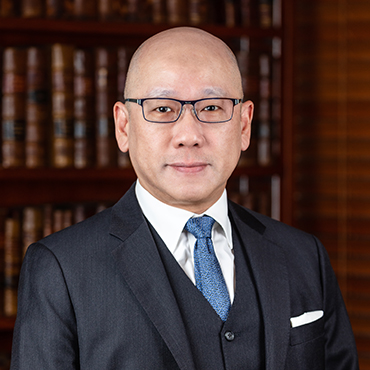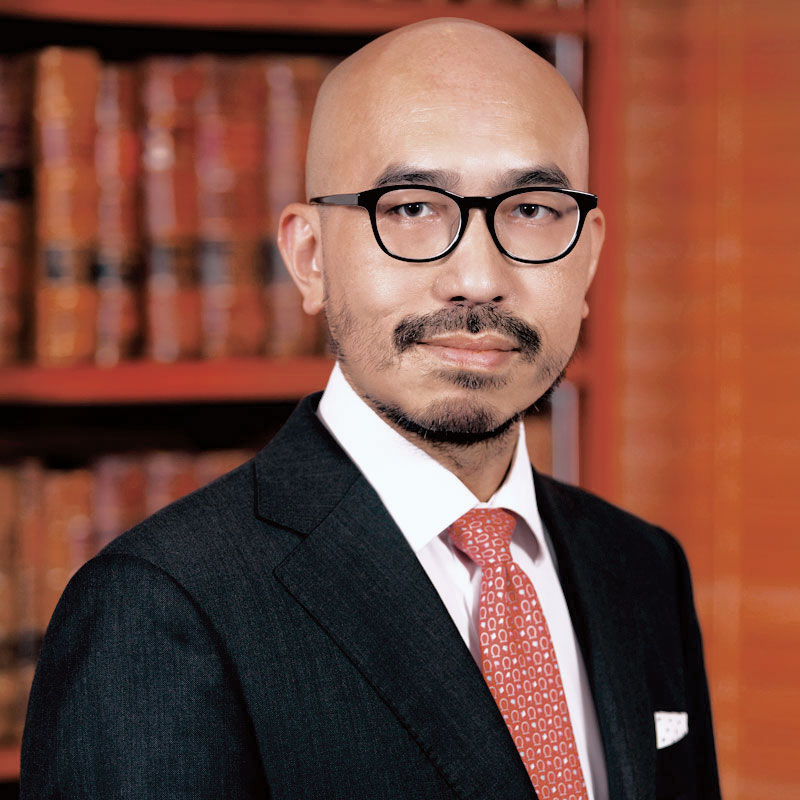Secretary for Justice v Timothy Wynn Owen KC (2022) 25 HKCFAR 288, [2022] HKCFA 23 (Robert Pang SC, Steven Kwan)
Robert Pang SC leading Steven Kwan, Ernie Tung and Colman Li, represented the respondent in Secretary for Justice v Timothy Wynn Owen KC (2022) 25 HKCFAR 288, [2022] HKCFA 23.
T, an overseas King’s Counsel, applied for ad hoc admission as a barrister under s.27(4) of the Legal Practitioners Ordinance (Cap.159) to represent L, a defendant in a criminal trial facing charges including offences under the Law of the People’s Republic of China on Safeguarding National Security in the Hong Kong Special Administrative Region (NSL). The Chief Judge exercised his discretion in favour of granting the admission. The Secretary for Justice (the SJ) appealed to the Court of Appeal on the basis that the Chief Judge erred in the exercise of his discretion. The Court of Appeal, after observing that the SJ’s challenge essentially went to the weighing exercise undertaken by the Chief Judge, dismissed the appeal, concluding that there was no valid basis to interfere with the exercise of the Chief Judge’s discretion (see [2022] 5 HKLRD 726). The SJ applied to the Court of Appeal for leave to appeal. In that application, the SJ raised new arguments, contending that the established principles for dealing with ad hoc admissions were “inapposite” for applications involving NSL cases and that a radically different approach should be adopted. The Court of Appeal refused leave to appeal, holding that insofar as the SJ sought to raise new points, the circumstances were not of such an exceptional nature as to justify departing from the principles in Flywin Co Ltd v Strong & Associates Ltd (2002) 5 HKCFAR 356; in any event, the Court of Appeal held that two of the new points sought to be raised were not reasonably arguable. In the present application, the SJ sought leave to appeal to the Court of Final Appeal against the orders granted by the Courts below, repeating his submissions that the radically different approach to ad hoc admissions involving NSL cases should be adopted, and additionally sought leave to appeal on the “or otherwise” basis.
Held, dismissing the application for leave to appeal, that:
- (1) The first aspect of the Flywin doctrine, referred to as the “state of the evidence” bar, arose where the new point involved factual issues which had not been explored below because, the matter not having been raised, potentially relevant evidence had not been adduced and the issue had not been addressed in argument. The second aspect, referred to as “the not considered on intermediate appeal” hurdle, stipulated that only in the most exceptional circumstances would the Court of Final Appeal entertain an appeal on a new issue, not fully explored and argued below, when it involved a major development of the law (Flywin Co Ltd v Strong & Associates Ltd (2002) 5 HKCFAR 356 applied; Lehmanbrown Ltd v Union Trade Holdings Inc (HCMP 977/2015, [2015] HKEC 1139), Law Society of Hong Kong v Solicitor (CACV 78/2014, [2015] HKEC 1367) approved). (See paras.20-26.)
- (2) In the SJ’s application for leave to appeal, the SJ sought to raise radically new points which were not mentioned or explored either before the Chief Judge or the Court of Appeal. The SJ failed to surmount the hurdles posed by Flywin as the questions formulated by the SJ gave rise to a host of further issues which had not been examined factually, were not supported by evidence, and were not canvassed in arguments on intermediate appeal. Accordingly, the application was dismissed. Having declined leave to appeal on the Flywin principle, it was unnecessary to consider whether the Court of Appeal was correct to hold that certain questions raised by the SJ were not reasonably arguable (Flywin Co Ltd v Strong & Associates Ltd (2002) 5 HKCFAR 356 applied). (See paras.27-32, 34.)
- (3) National security considerations, where they properly arose, were considerations of the highest importance to be taken into account in ad hoc admissions. However, the SJ had fundamentally changed his case only at the stage of seeking leave to appeal to the Court of Final Appeal, raising undefined and unsubstantiated issues said to involve national security which were not mentioned or explored in the Courts below. No appropriate basis had been made out for the grant of leave to appeal. (See para.33.)
[The above is excerpted from the headnote to the report in HKCFAR.]



